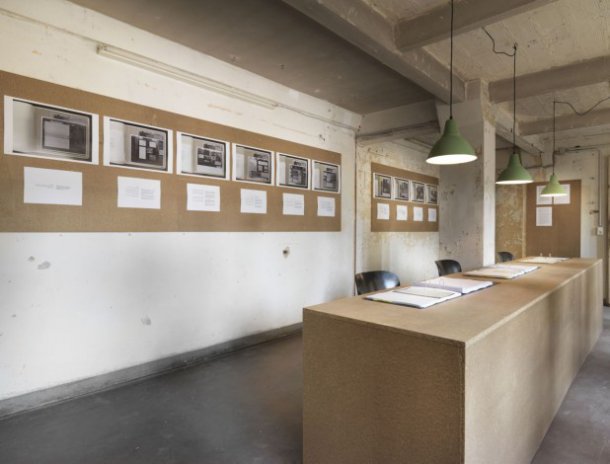A dinâmica artística em Kampala
Publicado4 Out 2014

Emma Wolukau-Wanambwa, Nice Time, 2014, Ausstellungsansicht SAVVY Contemporary, 2014 © Neuer Berliner Kunstverein / SAVVY Contemporary /Jens Ziehe
Emma Wolukau-Wanambwa é uma artista e investigadora nascida em Inglaterra, com origens ugandesas. Tem trabalhado em torno das representações do colonialismo tardio, sobretudo na África Ocidental, desde 2011.Participou no primeiro Kampala Contemporary Art Festival (em 2012), que está agora na 2ª edição, e fala, nesta entrevista das mudanças que observa em Kampala nos últimos quatro anos, no plano artístico.
C&: Now finally, how would you describe the art scene in Kampala?
EWW: A lot has changed in the four years since I started visiting Kampala. The artistic community is ever more curious about what is going on in other parts of the world, and is increasingly keen to take part in various international conversations. The new Kampala Art Biennale, launched in August this year, is the most recent testament to that fact. I would say the key catalysts for the changes I am now seeing are: KLA ART 012 (Kampala Contemporary Art Festival 2012); David Adjaye and Simon Njami’s touring exhibition, Visionary Africa: Art at Work, which was presented in Kampala at the same time; the opening of 32º East (a project space, library, and studio complex that has reconnected Uganda with the Triangle Arts Network and brought a steady stream of artists into Uganda from abroad); Fas Fas (Ronex Ahimbisibwe’s short-lived artists’ space); and, obliquely, the success of Bayimba – a tremendously popular performing arts festival that now takes place all over the country and is becoming a major force in the region. I think the efforts and achievements of its founder Faisal Kiwewa and his team have been a valuable object lesson in what can be achieved.
A entrevista completa, na Contemporary and
